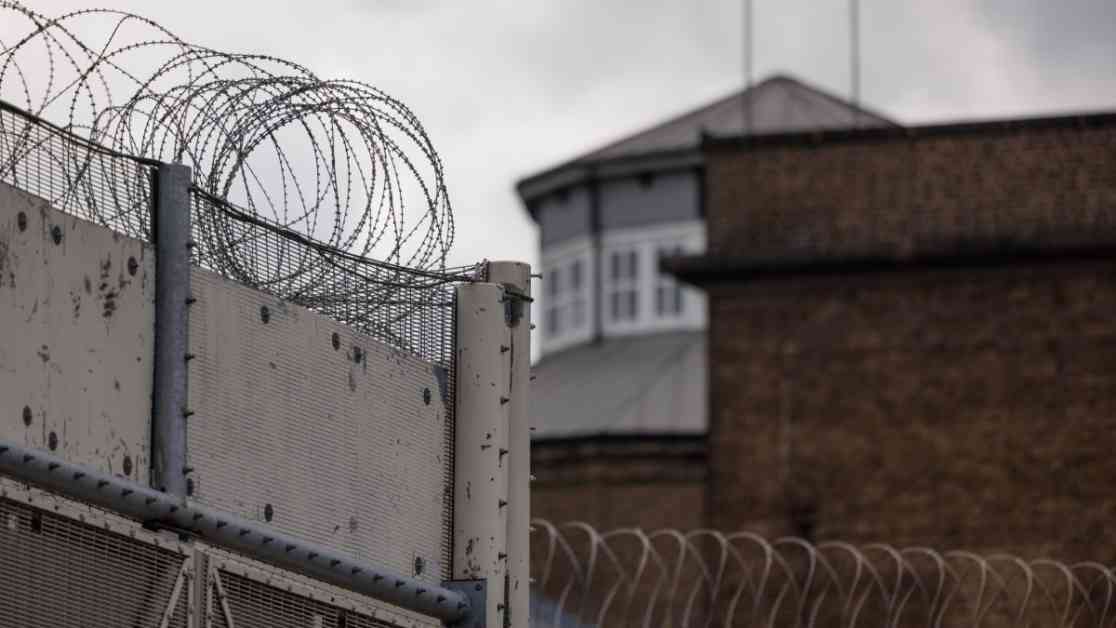The Government’s Controversial Early Release Scheme Under Scrutiny
The Government’s early release scheme to alleviate prison overcrowding has come under fire after a former inmate, Amari Ward, was charged with sexual assault just one day after being freed. This incident has raised concerns about the effectiveness and safety of the program, which saw approximately 1,750 prisoners released earlier than scheduled.
Amari Ward, 31, was released as part of the policy aimed at reducing the population in prisons across England and Wales. However, his release quickly turned into a nightmare when he was accused of sexually assaulting a woman in Sittingbourne, Kent, on the same day he regained his freedom. Ward was subsequently arrested and charged with sexual assault, denied bail, and promptly returned to prison.
The Ministry of Justice (MoJ) has defended the early release scheme, citing the dire state of the prison system that the current administration inherited. According to a spokesperson for the Ministry of Justice, the government had no choice but to introduce emergency measures due to prisons being on the brink of collapse. The spokesperson emphasized that the release of prisoners was necessary to ensure the functioning of the judicial system and law enforcement agencies.
Critics of the early release scheme argue that the government’s priority should be public safety and that releasing potentially dangerous individuals early poses a significant risk to society. The policy allows for the temporary reduction of sentences for certain offenders, including those convicted of violent crimes such as manslaughter. However, terrorists and sex offenders are explicitly excluded from the scheme.
Subheadings
Concerns Over Public Safety
Criticism of the Early Release Scheme
Calls for Reevaluation and Accountability
Concerns Over Public Safety
The case of Amari Ward has reignited concerns about public safety and the potential risks associated with releasing prisoners early. The incident has highlighted the challenges of balancing the need to reduce prison overcrowding with ensuring the safety of the general public. Critics argue that prioritizing the former over the latter can have dangerous consequences, as demonstrated by Ward’s alleged actions.
The Ministry of Justice’s assertion that the early release scheme is necessary to prevent a collapse of the prison system may not be sufficient to assuage fears about the potential dangers posed by released inmates. The case of Amari Ward serves as a stark reminder of the complexities and risks involved in managing the prison population and implementing policies aimed at reducing overcrowding.
Criticism of the Early Release Scheme
The controversial early release scheme has faced criticism from various quarters, with concerns being raised about the criteria used to determine which prisoners are eligible for release. Critics argue that the policy fails to adequately assess the risks posed by released inmates and that public safety should be the primary consideration in such decisions.
The decision to release individuals convicted of violent offenses, including manslaughter, has raised eyebrows and prompted calls for a reevaluation of the criteria for early release. Critics argue that allowing offenders convicted of serious crimes to be freed early undermines public confidence in the justice system and could potentially lead to an increase in crime rates.
Calls for Reevaluation and Accountability
In light of the recent incident involving Amari Ward, there have been renewed calls for a reevaluation of the early release scheme and greater accountability in the decision-making process. Critics argue that releasing individuals with a history of violence poses an unacceptable risk to public safety and that stricter criteria should be applied to determine eligibility for early release.
The Ministry of Justice must address the concerns raised by the public and ensure that the early release scheme is implemented in a way that prioritizes public safety above all else. Greater transparency and accountability in the decision-making process are essential to building trust and confidence in the justice system and ensuring that released inmates do not pose a threat to society.
Conclusion
The case of Amari Ward highlights the complexities and challenges of managing the prison population and implementing policies aimed at reducing overcrowding. While the government has defended the early release scheme as a necessary measure to prevent a collapse of the prison system, the incident has raised valid concerns about public safety and the risks associated with releasing potentially dangerous individuals early.
Moving forward, it is crucial for the Ministry of Justice to reevaluate the criteria for early release and ensure that public safety remains the top priority in all decision-making processes. By addressing the concerns raised by critics and implementing stricter measures to assess the risks posed by released inmates, the government can work towards building a justice system that is fair, transparent, and accountable to the public.













